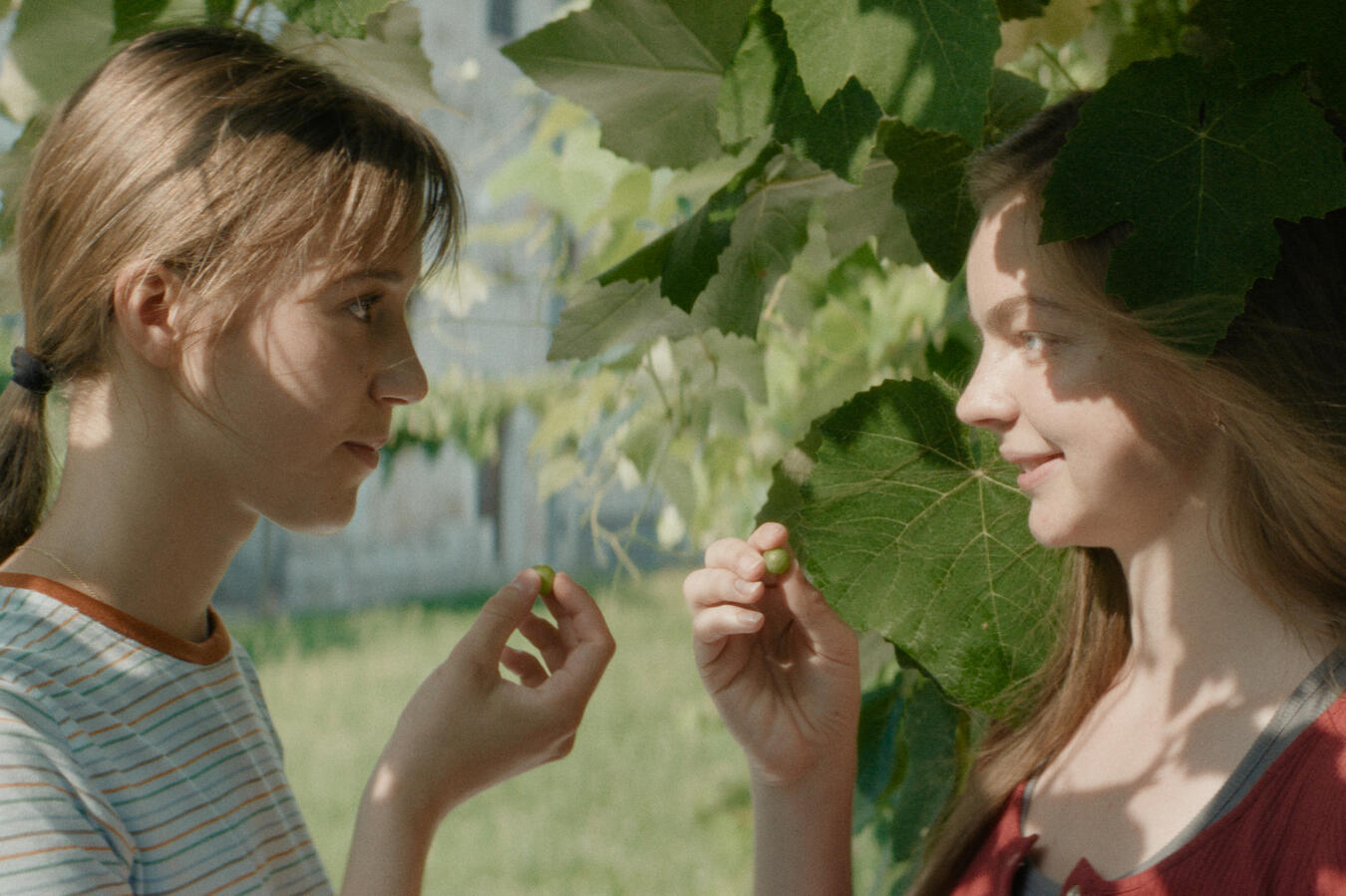There is an intense vulnerability at the heart of Urska Djukic’s Little Trouble Girls.
Centred on the doe-eyed Lukija (Jara Sofija Ostan), a shy, newer member of a girls’ choir, Djukic’s first feature film beautifully navigates her fist awkward steps into a world of sexuality. In being a depiction of burgeoning womanhood within the confines of strict religious values, Little Trouble Girls may not seem immediately envelope pushing, but this graceful film manages to capture a genuine sense of the uncertainty and bewilderment its protagonist is struggling with. The result continues to be successful at festivals globally and proves to be an impressive movement into the longer form for Djukic who many will know as one of the co-directors of the phenomenal, award-winning animated short Granny’s Sexual Life.
The formal vibrancy of that animation makes way for intimate and elegant realism here. The film opens to the sounds of breathing exercises and drops into a choir rehearsal with close-up shots of fidgeting hands, twirling hair, and stifled yawns. There is a tactility right from these first seconds and frames, one that gives the film and almost haptic quality which becomes more apparent as Lukija’s eye is drawn to a vivacious classmate, Ana-Marija (Mina Svajger) who she is told to stand next to. Djukic combines this physical proximity with the ecstatic nature of many of the choral harmonies they are performing to wonderful effect. In that opening scene, Lukija’s becomes transfixed by Ana-Marija’s lipstick-laden mouth as she sings, caught in a reverie. Later in the scene Ana-Marija puts lipstick on Lukija’s mouth, only for her strict religious mother to later chastise her for wearing it.
This subtle and innocuous moments and contradictions become elevated when the choirmaster (Sasa Tabakovic) takes the girls away to a rural convent for some intensive rehearsals. Here Lukija finds herself caught between her infatuation with Ana-Marija, the allure of the bare-chested builders doing construction work in the convent courtyard, and the convent surroundings including a statue of Mary that gripped Lukija’s gaze when she first saw as much as Ana-Marija had. Any of these instances prompt editorial inserts – montages of blooming flowers that flit unbidden into Lukija’s mind. Each and every of these elements could be brazen or provocative, but Djukic’s intent seems far more focused on tangling the knot of Lukija’s onrushing womanhood rather than fetishising it.
While the English title is shared with Sonic Youth’s 1995 siong, the original Slovenian title of the film is taken from a popular song “Kaj ti je, deklica?” which translates in English to something like “What’s wrong, girl?” It feels apt for Lukija who is evidently not someone used to opening up about how she is feeling and seems quite naïve in comparison to the other girls around her. Ostan plays this beautifully, her eyes both skittish and hungrily watchful, abashed and seduced by the new worlds opening up before her. When the young actress does incredibly well is manage Lukija’s inscrutability, meaning that the audience is never entirely sure either precisely what she is feeling or, more importantly, how she will act as a result. The sexual tension between Lukija and more worldly Ana-Marija is managed brilliantly, creating a will they-won’t they dynamic that strains against the former’s spirituality to create an authentic and gripping personal dilemma. When one of the sisters from the convent answers the girls’ questions about physical desire and the rapturous love of God, Lukija almost seems persuaded.
This may all sound very heavy, but Little Trouble Girls never feels that way. Instead, it is a film of summery yearning. The girls are playful together and the flirtations are charming, they exchange knowing looks and suppress giggles. The lightness is punctuated by the overwhelming onset of hormone and emotion – and there are sequences of social tension that will have audiences holding their breath – but remains absolutely absorbing. It is a beautiful film in its own right and a clear indicator that Urska Djukic is a major talent.
Director: Urska Djukic
Cast: Jara Sofija Ostan, Mina Švajger, Saša Tabakovi?, Nataša Burger, Staša Popovi?
Producers: Miha Cernec, Jozko Rutar
Screenplay, Maria Bohr, Urska Djukic
Cinematography: Lev Predan Kowarski
Editing: Vlado Gojun
Sound: Ivan Antic, Julij Zornik
Art Direction: Vasja Kokelj
Production company: SPOK Films (Slovenia)
Venue: Sarajevo Film Festival (In Focus)
In Slovenian
89 minutes






